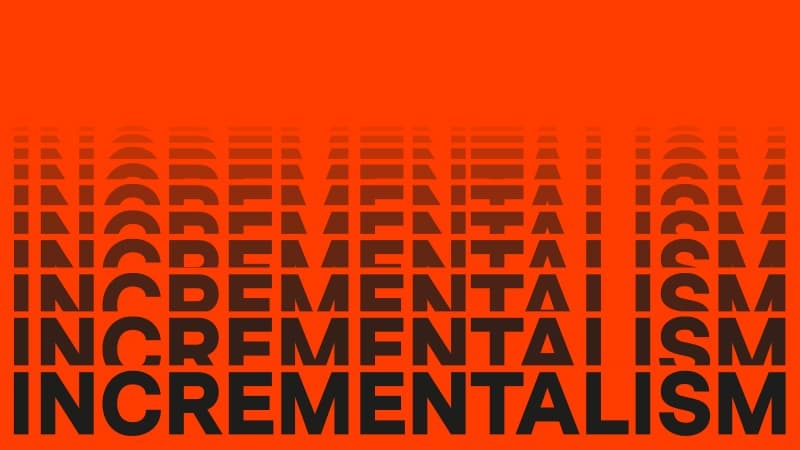The Corporate Home: Re-Defining a Company
What is a company? It’s a question we’ve all had to ask ourselves recently. And there’s no straightforward answer. Gone are the days when a company was a place of work, a set of four walls, a physical space that brought a business and its people together, giving them a collective identity, a sense of belonging.
In fact, recent studies have found that almost 60% of people would prefer to spend more time working from home than in the office, and most new job applicants say the option of flexible and remote working is more important than the salary. And despite the governmental push for a return to office-based working, this widespread demand for flexibility isn’t set to change any time soon.
So, as we spend more time apart, what is it that brings us together? What is it that makes us a company at all?
For many of us, this is a brand-new challenge, one that requires us to take a step back and reassess some of our most basic beliefs and assumptions about working life. But here at SED, we like to think we’ve got a bit of a head start, not least because Steve has long been pushing the boundaries of what a company can and should be.
Let’s rewind a few years…
Back in the late ‘70s and early ‘80s, before he founded the agency we are today, Steve worked a variety of jobs spanning a whole host of weird and wonderful workplaces, from film studios to racing stables. This exposure to different workplaces meant he never saw a company as a group of people in an office. For him, a company was a team with a shared vision, a common goal, whether that goal was a win on race day or a wrap on a film. And this mindset held strong when he set up his own creative agency in 1985.
Back then, brand and advertising agencies tended to operate from plush offices in Soho or the West End. But Steve saw no reason to follow suit. He set up in Shoreditch, which – this being the late ‘80s – was largely made up of empty warehouses and artists’ studios. It was rough around the edges, but it was a neighbourhood bursting with creativity, and because the company goal was to deliver creative, compelling brands and campaigns for clients, Shoreditch was the perfect place for Steve Edge Design to call home.
Of course, the choice to base in Shoreditch was highly unconventional at the time, but Steve was never one for convention. A few years later, when our head web developer decided to move out of London to start a family in his hometown of Wolverhampton, Steve saw this as no reason for him to leave the company. Why part ways just because we can’t be in the same physical space every day? A company is more than a set of four walls. It’s a set of beliefs, a shared vision. This philosophy, and a commitment to the virtues of remote working, was part of the company ethos long before the pandemic came along.
Four walls, reframed.
But this isn’t to say the office or studio is redundant. Far from it. It’s just that we need to reframe the role the physical workspace plays in our companies. Instead of setting compulsory office days just because working from the office is what we know, let’s ask ourselves: what purpose does the office serve? What benefit does it bring?
For us at SED, we’ve found real value in sharing a physical space at the beginning of the week, a space where we can discuss briefs, map out the week ahead, tell stories, share points of inspiration, collaborate on early ideas. And that’s the beauty of our studio. It gives us that physical, collaborative environment that offers a real benefit at the beginning of the week. Then as the week progresses, the focus naturally shifts to individual tasks and projects. And that’s when a personal workspace becomes much more beneficial. It allows each of us to engage in our own creative process, on our own schedules, without the distractions of a shared office.
This system won’t work for all companies, of course. But the important thing is to identify the benefits a shared workspace brings to your company, and use the office not just because it’s there, but because it brings real value to your business and its people.
Good for business. Good for the planet.
As we all know, what’s best for business isn’t always what’s best for the planet. But as we start to redefine what a company is, we begin to see that what works for companies can actively contribute to the health of our planet. Put simply, if a company is no longer identified with a place of work, but rather with a shared set of values and ambitions, this means employees are no longer obliged to be at the office every day. They can work from their living rooms, bedrooms, home offices or local coffee shops. This means less commuting, which means less CO2 emissions, which means a company’s carbon footprint is reduced dramatically. And when every company starts thinking this way, that’s a monumental win for the planet.
“Once we rid ourselves of the idea that our company is our place of work, we end up putting in a big shift for the planet as well.”
And there are other, perhaps more unexpected, benefits too. One of our designers recently relocated to Madrid, and as a result, we’ve had an influx of new clients, connections, and opportunities in the Spanish capital. The way we see it, these unexpected opportunities and happy accidents are part of what happens when you dare to drop the old ideas about what a company should be. We’re not saying this is easy. Moving away from the Monday-to-Friday office model of working is challenging. It requires trust – trust that we’re all pulling in the same direction, even though we’re miles apart, often in different time zones. But when we put faith in each other and build our companies around a culture of mutual trust and understanding, opportunities pop up where you least expect them.
Where next?
As our concept of what a company is continues to morph and change, we must be careful not to forget some of the more subtle benefits of a shared workspace. As branders, we know how powerful the branded environment can be. An office or studio embodies the values of a company, from the choice of furniture to the style of lighting to the art on the walls. It unites people, acting as a constant reminder of what they as a company believe in and the common goal they’re working towards.
So, how do we retain this sense of togetherness, this common goal, this shared vision, when we’re not sharing the same space every day?
It seems natural to start by thinking about the channels of communication we use when we’re not together. In lieu of face-to-face conversations and meetings, which play out in the office environment, we now use video calls and chat functions on the likes of Microsoft Teams and Zoom. Can these new communication channels embody a company brand in the way that a well-designed office, studio, or physical workspace can? And if so, how?
We certainly don’t have all the answers, but to get the ball rolling, let’s say each company has its own Microsoft Teams interface, a digital environment which can be personalised to accommodate their company brand, from their colour palette and logo to their tone of voice. This would go some way to recreating the power of the branded environment online, helping to keep a company made up of different people in different workspaces in different parts of the world united behind one shared identity. It’s the spirit of a physical workspace, brought online.
What do you say, Microsoft?
–
The question of what it means to be a company has never been an easy one to answer. And for many of us, our answers have probably changed over the course of the last two years. But what we’ve all learned is that a company is so much more than a set of four walls. It’s about people coming together behind a shared set of values and a common vision, no matter where and when they’re working.
Our challenge now is to make sure those values and that vision remain clear and true as the office environment becomes less integral to working life. It’s up to us all to find solutions that keep us united as a company as we spend more and more time apart.
- Share:



